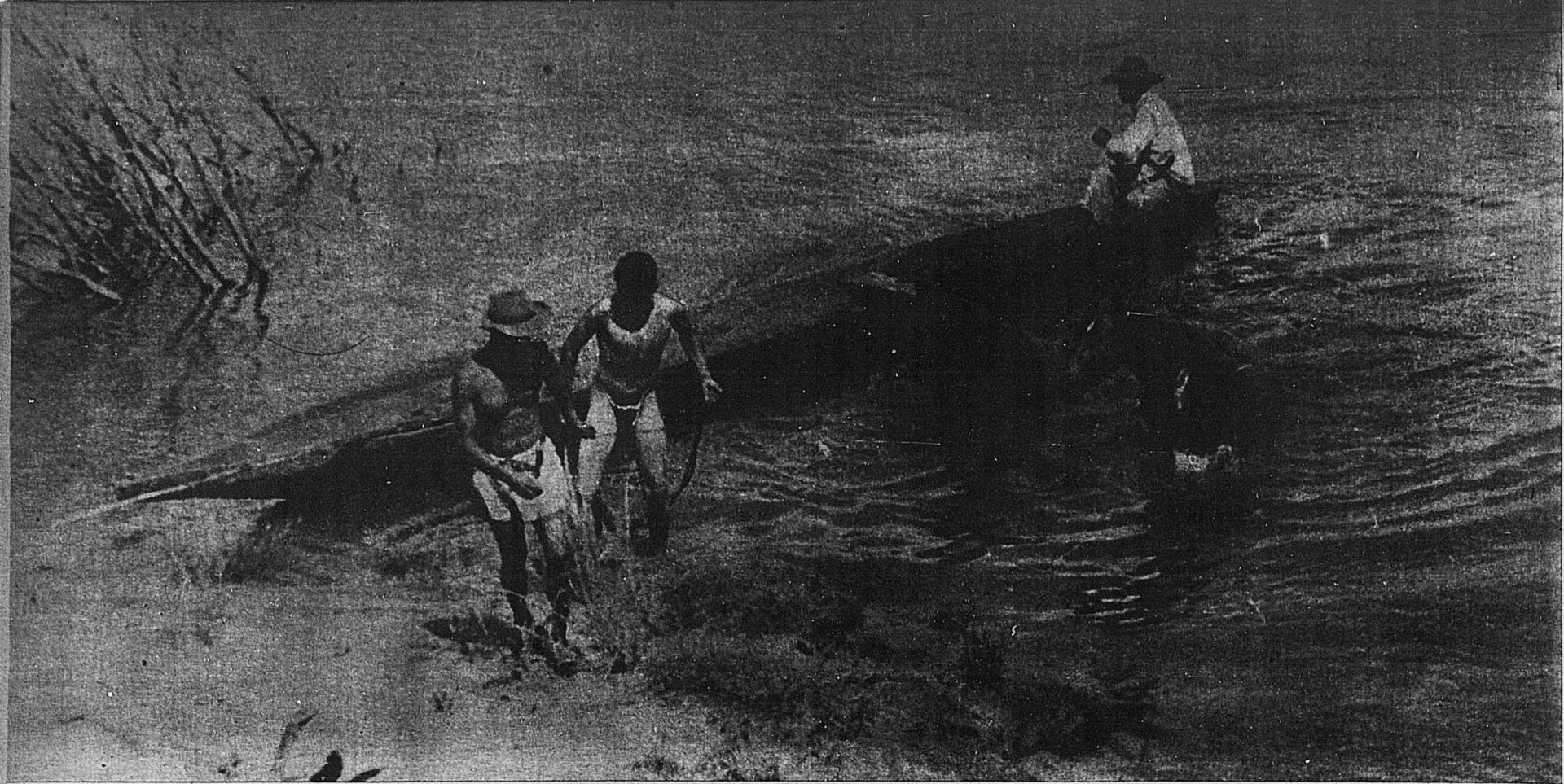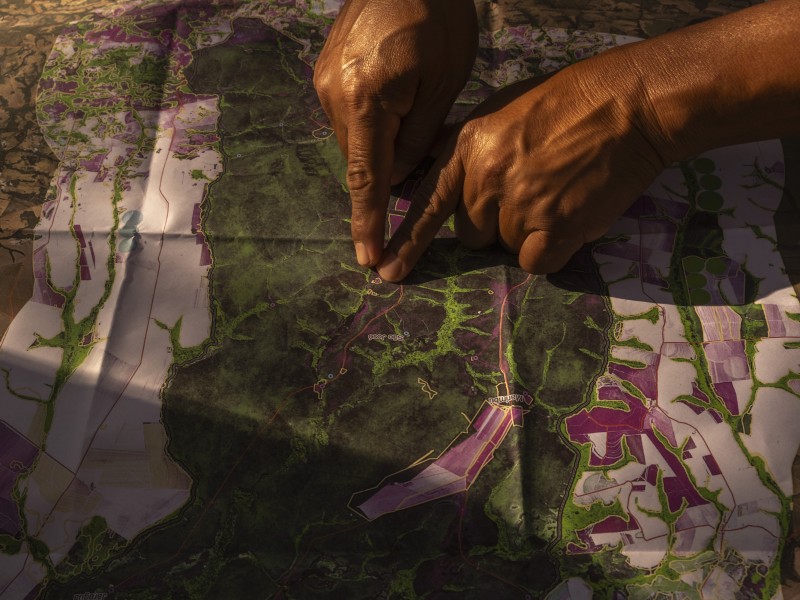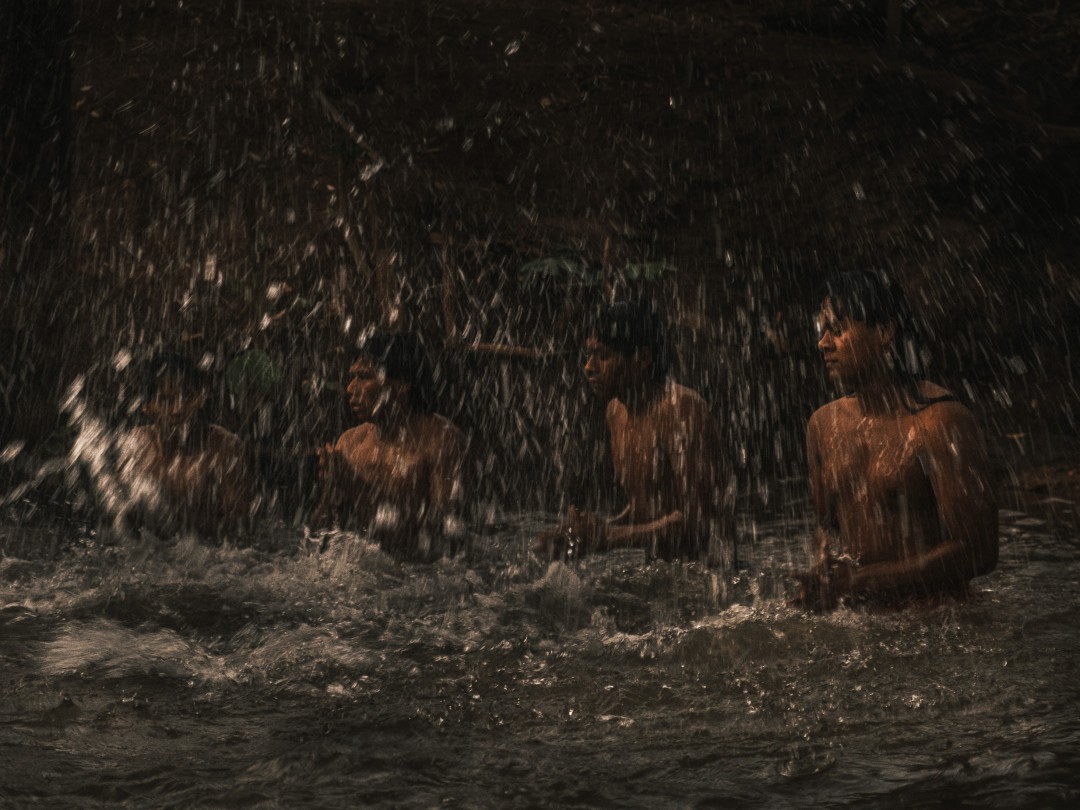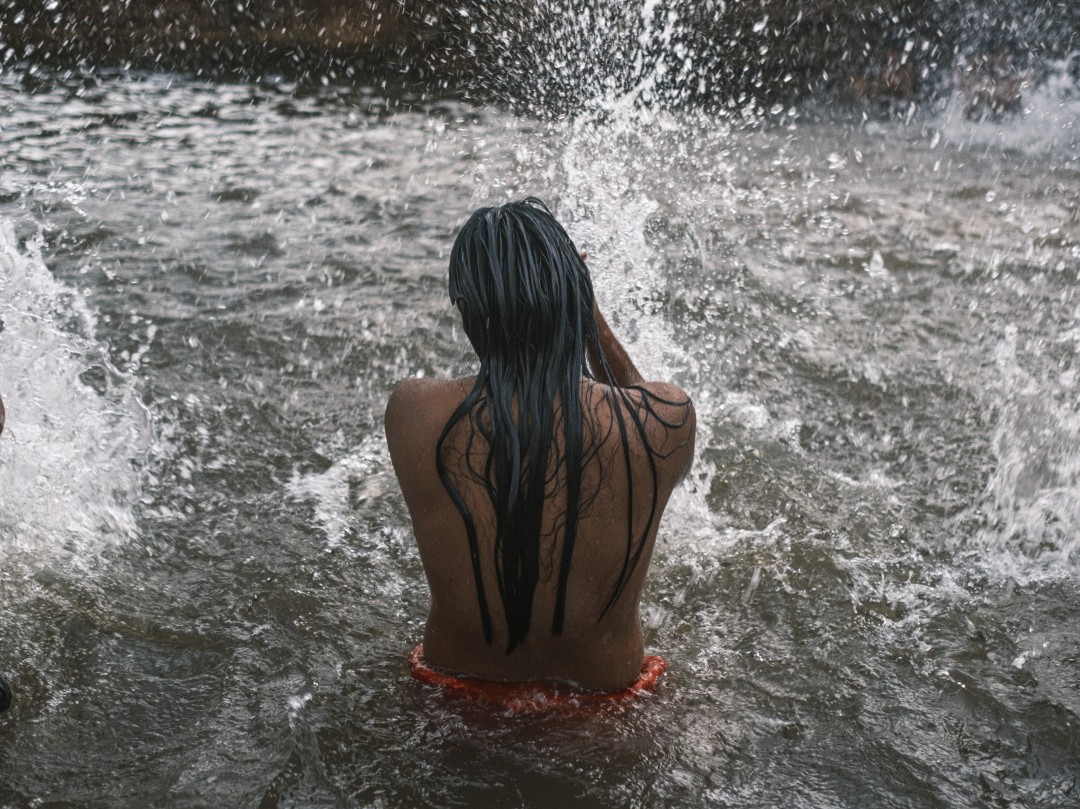Our River
Even after “contact”, we established our villages on the riverbank and watched over it.
The waradzu gives it the name “River of Deaths”, or Rio das Mortes in Portuguese, but for us, it is very much alive. The Öwawe, as we call it, is part of our territories, part of our land, part of our people.
We, the A’uwe, inhabit its banks from its mouth at the Araguaia River to its headwaters in Mato Grosso state.
Our grandparents defended the Öwawe. When the first waradzu arrived, they found their arrows stuck in the sand as a warning not to approach.

SPI employees arrive in Rio das Mortes (1940s)

Discussions about environmental management and spring recovery. TI Sangradouro/Volta Grande, 2023.
Even after “contact,” we established our villages along the riverbanks and kept watch. From there, we witnessed the land being cleared for large farms. The government cut our lands with highways, creating villages and cities around our territories. They disregarded the springs and the water sources, and now there are almost no fish. Our river is drying up. Its waters are diverted to irrigate soybean fields and contaminated by the poison sprayed on the plantations.
The same companies that cleared the savannah to plant soybeans want to dam our river and its tributaries to build hydropower plants. There are over 20 planned hydropower projects in the River of Deaths basin. We fight for the participation of all A’uwe in assessing the impacts of these projects and for the right to free, prior, and informed consent to protect the life of the Öwawe River. In the early 2000s, we resisted the construction of the Toricoejo and Água Limpa hydropower plants. Our fight was successful, and these projects were deemed unfeasible due to the impact they would have on our land and culture. However, it didn’t take long for a company to submit licensing requests for four other hydropower plants. Now, we mobilize to demand an assessment of the impacts of the Entre Rios, Vila União, Cumbuco, and Geóloga Lucimar Gomes small hydropower plants and continue to resist the projects that threaten our river.
The Xavante Warã Association fights for the Öwawe to be protected as a cultural and environmental heritage of the A’uwe people and all Brazilians. We want a vibrant River of Deaths!
Initiation rituals of wapté youth. TI Parabubure, 2023.

